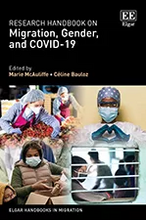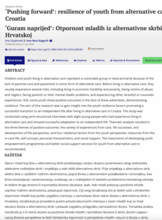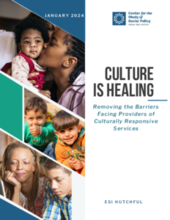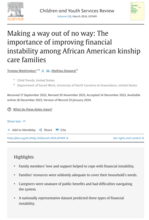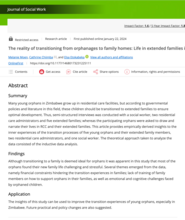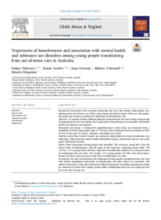Displaying 291 - 300 of 10392
In this webinar, community providers discussed the challenges they face in providing responsive services, including building evidence and operating in the context of restrictive “evidence-based” standards, as well as recommendations for actions state and federal policymakers can take to ensure all families have the support they need through expanding access and availability of programs that are developed by and for communities of color.
This chapter is part of the "Research Handbook on Migration, Gender, and COVID-19" and explores the gender and youth dimensions of return from GCC States to the East Africa subregion, focusing on three countries: Uganda, Kenya and Ethiopia.
The aim of this research was to gain insight into the youth resilience factors promoting a successful transition to an independent life after living in alternative care in Croatia. The study was conducted using semi-structured interviews with eight young people who had experience living in alternative care and showed successful adaptation to an independent life.
Ensuring child and family well-being requires a radically different, anti-racist response of supports that center the voices of diverse children and families of color, are dignified and strengths-based, and that are offered in spaces they trust. As this brief highlights, community-based organizations across the U.S. are striving to answer that call despite numerous barriers. This brief lifts up the voices of those community providers, with the goal of highlighting and addressing the barriers that stand in the way of all families having the support they need.
This webinar explored the role of the Catholic Church in responding to children who are migrating alone or who are at risk of or have been separated from their families&nbs
This study examined African American families who are providing informal kinship care in the U.S. with the aim of developing a nuanced understanding of the financial characteristics, challenges, and coping strategies of these families.
Este Conjunto de Herramientas está compuesto de las herramientas enumeradas a continuación, que pueden ser leídas de manera independiente o conjunta.
Many young orphans in Zimbabwe grow up in residential care facilities, but according to governmental policies and literature in this field, these children should be transitioned to extended families to ensure optimal development. This article provides empirically derived insights to the inner experiences of the transition processes of five young orphans and their extended family members, two residential care administrators, and one social worker.
The aim of this study was to examine whether different subtypes of homelessness risk exist among young people transitioning from care in Australia and whether these trajectories of homelessness are associated with mental health and substance use disorders.
This longitudinal study uses a causal effect model to examine, through decomposition, the relationship between care environment and HIV risk factors in orphaned and separated adolescents and youths (OSAY) in Uasin Gishu County, Kenya; considering resilience, social, peer, or family support, volunteering, or having one’s material needs met as potential mediators. The authors analysed survey responses from 1105 OSAY age 10–26 living in Charitable Children’s Institutions (CCI) (orphanages) and family-based care settings (FBS).

